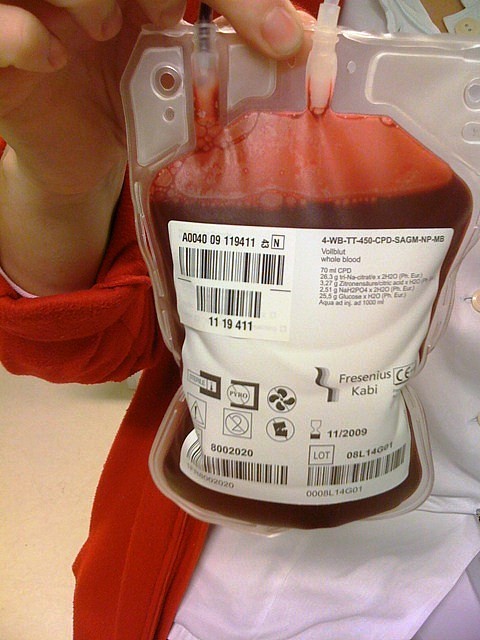Donating Blood Averts Heart Attack and Stroke Risk: Experts

Donate blood to reduce the risk of heart diseases and strokes, finds a study.
Cardiologists from Loyola's Gottlied Memorial Hospital recommend people to donate blood to not only reduce the problem of blood shortage during emergencies but to also improve health.
Too much iron in the blood stream leads to atherosclerosis or thickening and narrowing of arteries. This restricts blood flow to vital organ and adds excess pressure on theheart resulting in damage of blood vessels, strokes and cardiac arrests. Blood donation protects against these deadly health conditions by bringing down the overall iron content in the body.
"Excessive iron is believed to contribute to heart disease and donating blood reduces the iron stores in the body," said Ivan Pacold, chairperson of Cardiology Department at Loyola's Gottlieb Memorial Hospital in a news release. "Plus you get a mini-assessment each time you give blood to reinforce wellness."
These findings are based on the American Medical Association study which observed that giving blood once every six months curbed the incidence of heart diseases and strokes in adults aged between 45 and 61. The blood of participants was collected after confirming their body temperature, blood pressure, pulse beats and blood counts were normal. This has encouraged hospital staff and employees to take part in the American Red Cross's blood donation drive that will be held on July 1.
Many hospitals and blood donation centers suffer acute shortage of blood in summers when the regular donors go on a vacation. The current study serves as preventive measure against scarcity of blood and health dangers of having too much iron in the blood.
"Blood can only be obtained through human donation, there is no synthetic substitute for blood," Pacold said. "One pint of blood can help up to three people in need, four if you include the donor."
Jun 11, 2014 07:46 AM EDT





